“How many of you are married?” asked Dave Averne, LA 92. When most of the EMBA 43 students raised their hands, he continued, “How many of you got married on the first date?” No one.
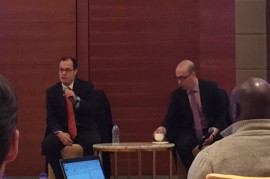
Seth Patch, Foreign Service Officer and David Averne, Commercial Service Officer discuss “Bringing Business to China.”
In the opening session of the instructional portion of EMBA 43’s International Residency in Shanghai, Averne, a Commercial Service Officer stationed in Shanghai, along with Seth Patch, Foreign Service Officer, explained that matching U.S. companies who want to bring their business to China with Chinese companies who want to partner with them is like arranging a marriage. It takes more than just one meeting to have a strong, productive relationship.
Averne also shared statistics about the healthy and growing Chinese appetite for sending students to the United States for education, Chinese tourism in the U.S., and Chinese investment in the U.S. Patch discussed the inherently brand conscious nature of Chinese consumers, and the growing market for imported alcohol in China.
The “matchmaking” process, is straightforward, said Averne. “A company contacts our office and says they want to take their business into East China. We work with our local staff and call around in the sector they are interested in. If, for example, it’s consumer goods–toys, we call 5-20 companies in this market that work as agents or distributors in the toy sector and ask if they are interested in meeting with the company. If 20 out of 20 are interested, we tell the company to come over immediately. If we get 5-10 out of 20, we see this as a pretty solid interest, worth having some meetings. If we get no one, that suggests there is no demand, and we don’t encourage the company to come over. ”
Joint Ventures in China: The General Motors Experience
The auto repair business, according to Henry Yin is different in China than the United States. “No one in China,” Yin said, during our second session of the day, “grew up working on the car in the garage with their dad. Everyone wanted to send their cars to the shop.”
Yin is currently China General Manager, SAF-Holland and was one of the key players in establishing the General Motors joint venture in China with Shanghai Automotive Industry Corporation (SAIC) in the 1990s.
Yin emphasized three factors as critical to success in building a Chinese business: Innovation, Relationships, and Discipline. In addition to describing GM’s innovative approach to auto repair, he explained that in China it took two and a half years to establish the relationship with SAIC that would likely have taken one year in the United States. In addition, GM considered nine potential partners during the time they were planning their move into China. In the case of the auto repair business, this process included sending a team of 30 engineers and sales people around China, essentially canvassing the potential territory for the auto repair business.
The joint venture process, Yin explained, cannot be rushed. To this day, the General Motors/SAIC relationship is considered one of the most successful joint ventures in China.
Business Panel Discussion: Cross Cultural Business
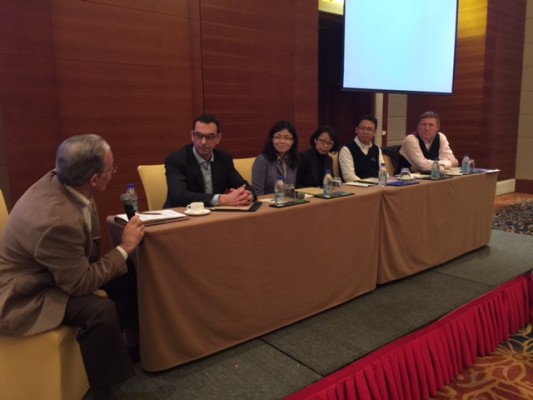
Lee Konczak moderates panel discussion. From left Konczak, Laurent Blaevoet, Liang Wang, Jessie Jiang, Frankie Yip, and Brian Ohlrich.
The afternoon session on Monday included a panel of business leaders with a wide variety of expertise in Chinese business. Some of the questions were answered as follows:
How do you see China’s slowing economy affecting your business?
Jessie Jiang, General Manager, Hill-Rom International, Inc, EMBA Shanghai Class 10 said, “Growth is not slowing for Health Care. We sell sophisticated ICU solutions. Although in every hospital in the US, electricity is very reliable, in China, Chinese government has recently invested a lot in hospital infrastructure in big cities and remote areas. Although in the US ICU nurses have to be certified, in China, a lot of the nurses are not certified. In terms of patient safety, there’s a lot of room for improvement, including the training.” Jiang has extensive expertise in the Healthcare field.
What is it like to lead here?
Frankie Yip, Director, Strategic Planning at Emerson Climate Technologies, EMBA 37 said, “An incentive program can’t just be financial. Life and work balance plays a role. The new generation got financial support from their families due to the one child policy. New couples, new families have two parent families to support them if they need money for housing. There isn’t a lot of financial pressure on them.” Yip has been at Emerson for several years.
China is used to executing other people’s innovations. How are you innovating as opposed to executing other people’s innovations?
Brian Ohlrich, President, Fine Furniture, Shanghai Limited, EMBA Shanghai Class 5, said, “There hasn’t been much innovation in the table and chair design for many years. For me it’s shifting from foreign investment to local investment. In China, consumers are driven by brand. They trust western products because they believe it’s good quality and made with good materials. At my company, everything is made in China.. People see the brand, trust the brand, see our stores in China, and see that it’s a quality product. We are making what is not so much high end US branded furniture but furniture that is more scaled for China, smaller living spaces. The plan is to have a China designed furniture line this year.” Ohlrich has operated a retail furniture business in China for more than 20 years.
Laurent Blaevoet, Managing Director, Chargeurs Protective Films Asia, EMBA Shanghai Class 8 said, “We see a lot of small innovations, we see more and more innovative Chinese products FOR the Chinese market being requested by other markets, more and more Chinese standouts. There is huge investment going on in making more and more Chinese requirements that will be exported outside of China.” Blaevoet has lived in China since 1995.
How are the CFDA (China Food and Drug Administration)’s efforts to improve food safety affecting your business?
Liang Wang, Co-founder and COO, Pantry’s Best, said, “We try to avoid as much as possible artificial additives and use really natural ingredients. From the perspective of the CFDA, strict temperature control is very important. Although standards are set, reinforcement needs to be improved. Smaller Chinese cities still have issues to be solved. Also, organic is a very popular concept. From Farm to table, also. People are pursuing this level of eating standards. Pantry’s Best is an e-commerce business specializing in high-quality, innovative desserts.”


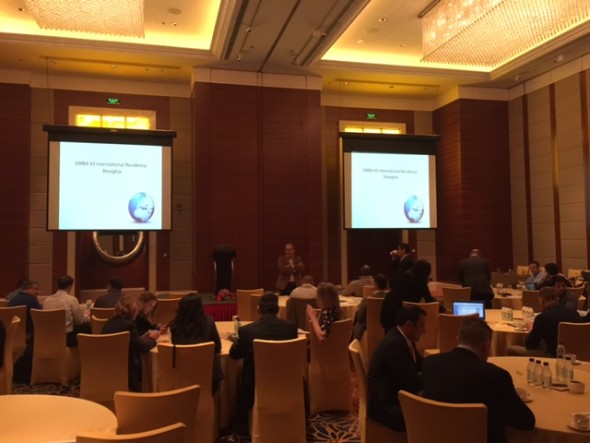
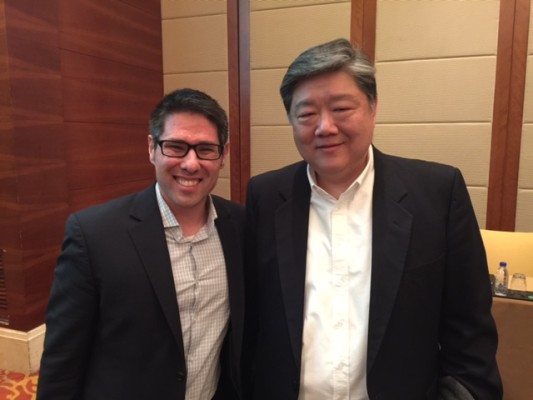


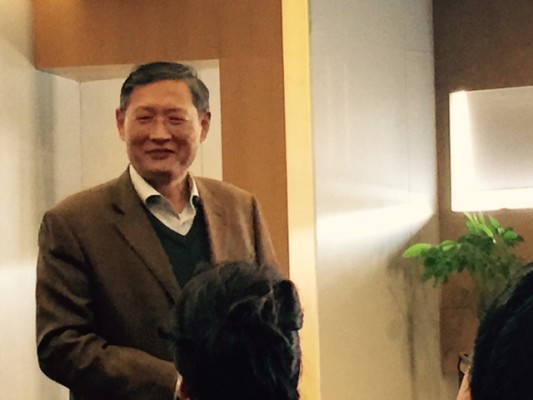

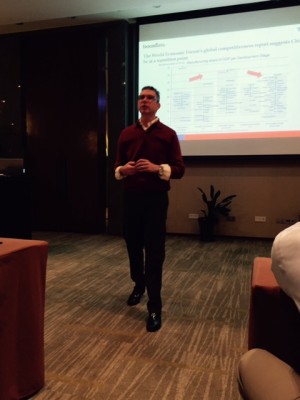
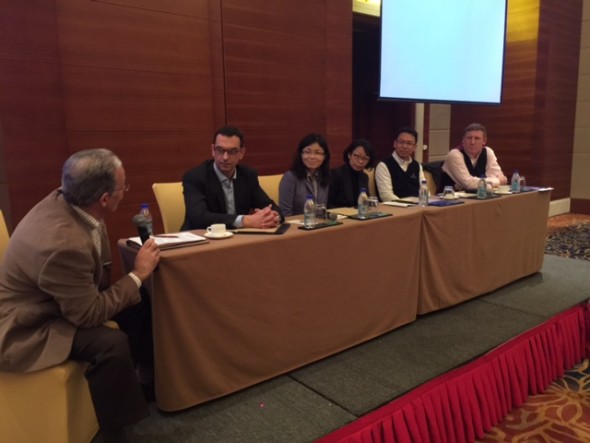
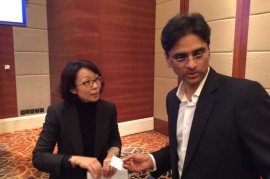
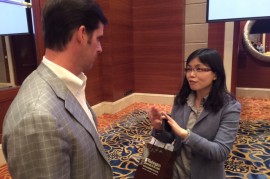

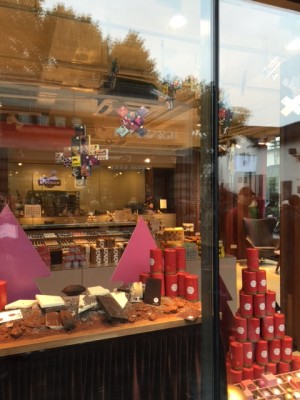
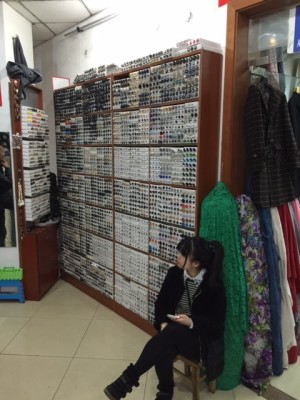

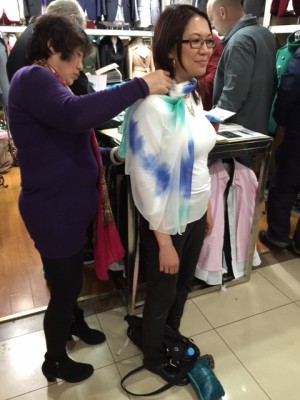

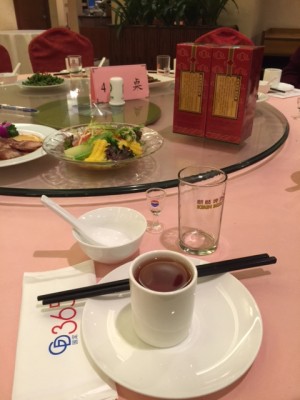
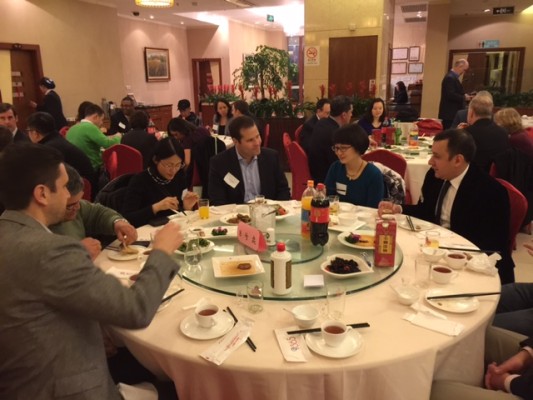



 It took a surprising amount of time to get to our hotel–about two hours. On the way, Frank provided some Chinese and Shanghai history as well as an overview of the agenda for the week.
It took a surprising amount of time to get to our hotel–about two hours. On the way, Frank provided some Chinese and Shanghai history as well as an overview of the agenda for the week.



